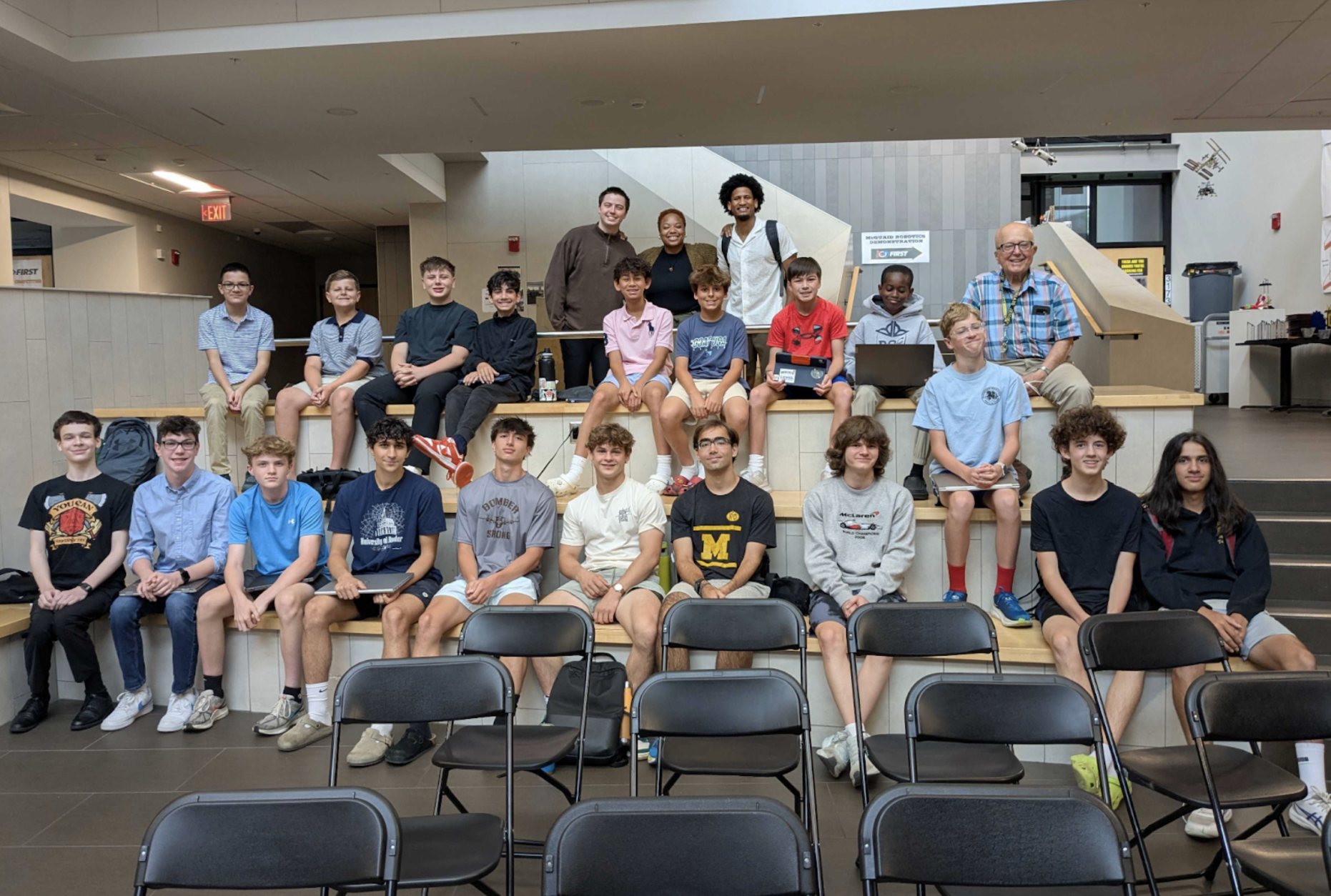
McQuaid Jesuit High School / Inspirit AI 2025
Summer AI Programs
Impact Report
Program Overview
In Summer 2025, McQuaid Jesuit High School launched its inaugural AI summer program for high schoolers. This two-week initiative introduced students to artificial intelligence fundamentals and guided them to build socially-impactful AI projects. The program combined hands-on coding, ethical discussions, real-world case studies, and coding labs, culminating in a showcase of student-led innovations addressing real world challenges.
AI Pioneers for Middle School Students
AI Scholars for High School Students
Program Highlights
Dates:
July 14-25, 2025
Participants:
22 students from rising grades 6-12 (split by year level/experience into two classes of ~10 apiece)
Inspirit Faculty:
Mekhi Jones, Stanford
B.S. Computer Science, AI track
Sanura N'Jaka, Stanford
B.S. Computer Science
Cason Shepard, Caltech
B.S. Information and Data Sciences, AI/ML
Curriculum Overview:
Python, machine learning, natural language processing, computer vision, neural networks, linear/logistic regression, AI+Ethics, positioning research projects in college applications (for high schoolers only), capstone projects unifying coding skill, ethical sensitivity, and research design
Capstone Projects:
Middle School:
Sketch Recognition
Music Recommendation Systems
High School:
AI Chatbots for Education
Distracted Driver Detection
NLP+Finance
Exoplanet Discovery
Outcomes and Impact
100%
of students responding to the final survey reported improved confidence in understanding and applying AI concepts, Python skills, and AI research design.
100%
of students successfully built an AI model to answer a specific research question.
80%
of students expressed a desire to pursue further AI or computer science education.
Student Feedback
“Overall I had a good amount of fun while learning a lot about AI and how it all works. I was able to connect with peers and collaborate on an exciting applied project.”
“My experience in the program was fun and I learned a few things about how AI works. I learned how to do more advanced things with code than what I already knew how to do. Like sketch recognition and how AI can help the world and be bad for the world.”
“It was fun and very informative, and great to learn how to do code AI while having access to help from a mentor.”
“It was fun to learn how to make an AI! It was really interesting to learn how AIs work, and to make one myself to perform different tasks. The instructors were helpful and fun!”
“I learned a lot about coding, AI, and how it works and I had a good experience all throughout the program. The instructors were all very helpful and I ended up completing a project I felt proud of.”
“The instructors were very helpful and able to aid students of different abilities”
“I liked learning about everything that we learned about involving AI. I also really liked making a project because it was nice to use the stuff that we learned in a practical way.”
Community and Culture
The programs fostered a culture of interdisciplinary collaboration: students from coding, humanities, and design backgrounds worked in teams on both mini-projects and the capstone project endeavor.
Instructor spotlight talks featured current faculty’s applied AI research in both laboratory and industry settings.
Students developed a strong sense of purpose-driven learning, anchoring technical knowledge in social good, and walked away with a set of ethical precepts to guide further research they may undertake in AI/ML.
→ Looking Ahead
→ Based on overwhelmingly positive feedback, McQuaid will be offering programs to middle and high schoolers in summer 2026 with a brand-new curriculum and set projects for new students that reflect the latest advances in AI/ML and that address current social challenges.
→ Alumni of the program will be invited to deepen their AI/ML exposure and build new projects with Inspirit’s team to facilitate their growth in the field.
→ Give students more time to complete an optional but recommended pre-program Python crash course (especially for novice coders)
→ Improve financial aid to expand opportunities for underserved students





